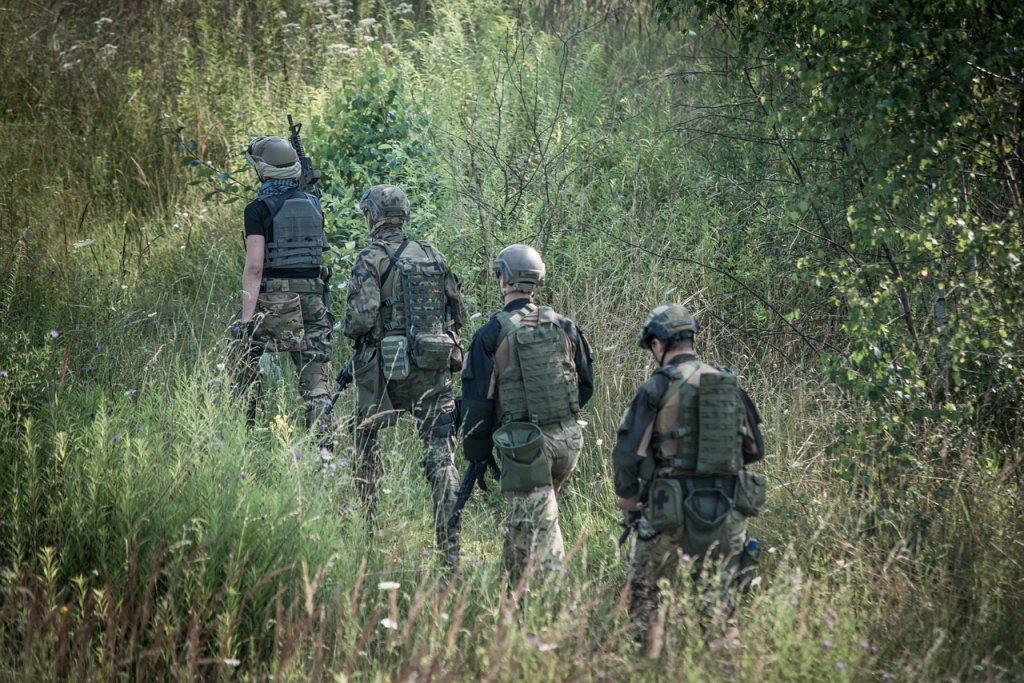
The resonance from the June 24 mutiny attempted by Yevgeny Prigozhin, the boss of the notorious Wagner group, remains strong, despite the attempts by President Vladimir Putin to demonstrate a swift restoration of stability in Russia. The full impact on the ability of Russian troops to withstand the Ukrainian offensive is yet to manifest itself, but it is already obvious that Russia’s international posture is seriously undermined. Characteristically, it was only President Recep Tayyip Erdogan who called Putin with expressions of support, while China stated its position on the lowest decently possible level – by publishing a statement from the press service of the Foreign Ministry. Putin’s claim for the role of a champion in the struggle against the US-dominated world order, which he seeks to replace by a vaguely defined “multi-polarity” is inevitably compromised by his demonstrated domestic weakness.
This confusion is particularly apparent in Russia’s relations with Africa, which in the last couple of years has become a priority in Moscow’s foreign policy, even if the shortage of resources for investing in economic development has weakened its diplomatic maneuvering. Putin’s discourse on countering Western neo-colonialism has never been convincing, but many political actors were impressed with his readiness to challenge the US-led coalition and are worried about the new energy in consolidating Western unity. Algeria’s President Abdelmadjid Tebboune, for that matter, was the guest of honor at the recent economic forum in St. Petersburg and found it opportune to agree “with everything Comrade Putin said”. Algeria continues to rely on Russian export of arms, despite the growing concerns about the reliability of this traditional supplier and the quality of Su-30 fighters and S-300 surface-to-air systems, and even staged small-scale joint military exercises last November.
Even more important for Moscow are the ties with South Africa, which is supposed to take central stage in the much-advertised Russia-Africa summit scheduled for late July in St. Petersburg. Cyril Ramaphosa, South Africa’s President, led a recent peace initiative, backed by leaders and officials of Egypt, Republic of Congo, Senegal, Uganda, Zambia, and the Comoros (which presently holds the chairmanship position in the African Union). Neither Ukraine, nor Russia were satisfied with the content of this initiative, but both found it appropriate to welcome it, so a modicum of success was achieved in terms of African public relations. A key controversy presently is about Putin’s participation in the BRICS summit to be held in August in Johannesburg in August (the date is not as yet agreed), because of the arrest warrant issued by the International Criminal Court, whose authority is recognized by Brazil and South Africa, but not by China, India, and Russia. Even if some sort of special arrangement is invented, Putin may find it inopportune to travel far from the Kremlin, because the mutiny, short and pathetic as it was, exposed the dubious loyalty of the elites.
Russian diplomatic offensive in Africa has never worked in synch with the other instrument of Moscow’s foreign policy – conflict manipulation by the deployment of Wagner mercenaries. For that matter, none of the states involved in the African peace initiative has had any encounters with the Wagner group, which has turned the Central African Republic (CAR) into the main hub of its activities since late 2017. The track record of Wagner interventions is far from stellar: The assault on Tripoli in spring 2020 resulted in a bad defeat, and the short deployment to Mozambique in autumn 2019 was also a fiasco. Nevertheless, the Wagner group, reinforced even with some airpower, managed to consolidate control over some oilfields in Libya, and the arrival of these mercenaries to Mali in late 2021 alarmed many stake holders in stability in the wider Sahel region to this new threat.
Russia’s aggression in Ukraine determined a profound transformation of the Wagner group, which became a 50.000-strong fighting force, comprised from gangs of criminals recruited in prisons, and the protracted battle for Bakhmut marked the high point in its expansion. This mutation, however, was poorly compatible with its role in Africa, where deniability was always a major feature. The US designated the Wagner group as a “transnational criminal organization”, and France more recently called the EU to list it as a “terrorist group”, and these sanctions have quite possible prevented the expansion of its activities to Burkina Faso, from which the French forces were withdrawn in spring 2023. The June 24 mutiny resulted in new sanctions, but more importantly, it has compelled the governments that employ the Wagner group, first of all CAR and Mali, to re-evaluate the risks of these contracts.
The “safe haven” that Prigozhin is granted in Belarus may turn out to be a rather uncomfortable prison, as Putin cannot forgive the humiliation and will find a way to settle scores with the “traitor”. It will be difficult for Russian special services to reconstitute the Wagner group in a more controllable format and under a different name, and those mercenaries who opt for relocation to Belarus may find themselves not in a new base, but behind bars. Moscow may try to sustain the para-military operations in Africa, but the key people running the clandestine networks, such as the logistical hub in Cameroon, are too closely associated with Prigozhin – and are duly targeted by personal sanctions. The reputation that the Wagner group has built over years (dirty as its is) cannot be transferred to newly-established quasi-private para-military enterprises (even if owned by Gazprom), so even Russian experts suggest that the demand for semi-official military services in Africa would probably be fulfilled by China.
Moscow may find it necessary, rather than merely convenient, to pretend that the sharp spasm of domestic political crisis has passed with no lasting consequences. It is set to find, nevertheless, that its space for both diplomatic intrigues and military interventions in Africa has contracted sharply and irreversibly.

Pavel K. Baev, Dr., Peace Research Institute, Oslo (PRIO)
Dr. Pavel K. Baev is a Research Professor at the Peace Research Institute, Oslo (PRIO). He is also Senior Non-Resident Fellow at the Center for the U.S. and Europe at the Brookings Institution (Washington D.C.), Senior Associate Researcher at the Institut Français des Relations Internationales(IFRI, Paris), and Senior Associate Research Fellow at the Italian Institute for International Political Studies (ISPI, Milan). His research interests include the transformation of the Russian military, the energy and security dimensions of the Russian-European relations, Russia’s Arctic policy, Russia-China partnership, post-Soviet conflict management in the Caucasus and the Caspian Basin, and Russia’s Middle East policy, which is supported by the Norwegian Foreign Ministry. He writes a weekly column in Eurasia Daily Monitor.
To cite this work: Pavel K. Baev, “The Wagner mutiny damages Russia’s policy in Africa”, Panorama, Online, 03 July 2023, https://www.uikpanorama.com/blog/2023/07/03/pb-6/
Copyright@UIKPanorama. All on-line and print rights reserved. Opinions expressed in works published by the Panorama belongs to the authors alone unless otherwise stated, and do not imply endorsement by the IRCT, Global Academy, or the Editors/Editorial Board of Panorama.

